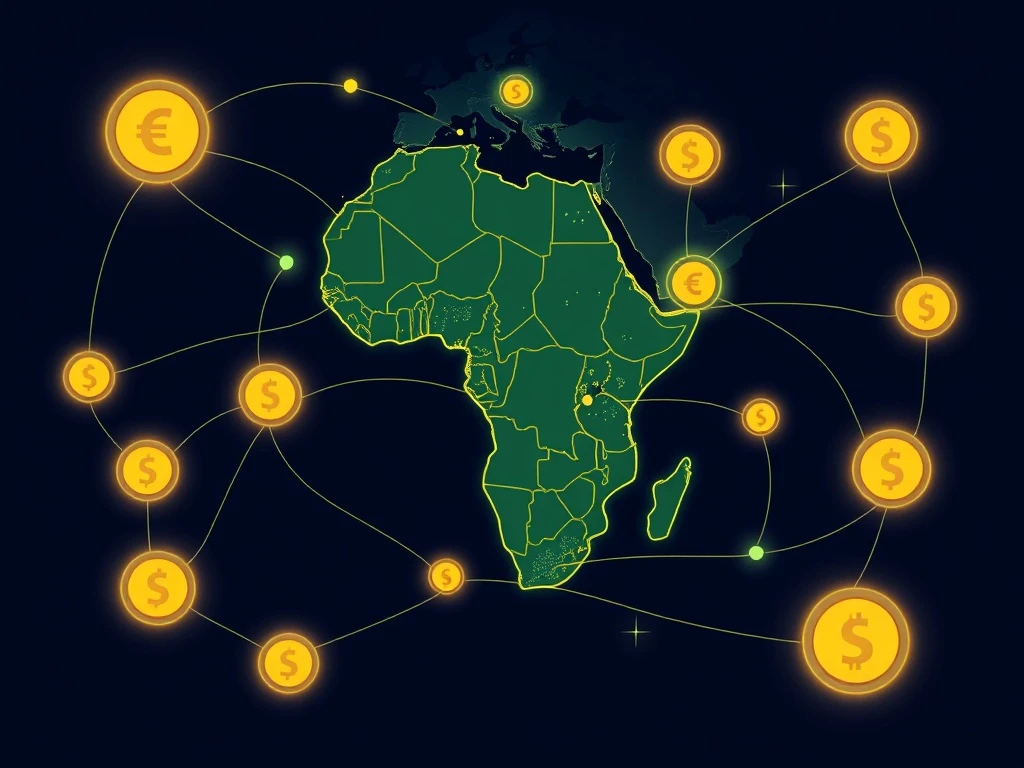Ripple’s groundbreaking regulated stablecoin is transforming Africa’s financial landscape, addressing critical climate-driven gaps while providing institutional-grade digital dollar solutions for cross-border payments and risk management.
Ripple Stablecoin Expansion into African Markets
Ripple strategically launches its USD-backed stablecoin across Africa through key partnerships. The company collaborates with leading fintech firms Chipper Cash, VALR, and Yellow Card. This expansion targets institutional cross-border payments and liquidity management. Furthermore, the Ripple stablecoin offers regulated infrastructure for emerging markets.
Regulatory Compliance and Market Position
The Ripple stablecoin maintains strong regulatory oversight from New York DFS. With over $700 million in supply, RLUSD provides compliance-focused alternatives. Importantly, it serves regions with limited banking access effectively. Major exchanges including Bitstamp and Kraken now list the stablecoin.
Climate Risk Insurance Applications
Mercy Corps Ventures pilots innovative climate solutions using Ripple’s technology. Automated drought-triggered payouts utilize escrowed stablecoins connected to satellite data. Parametric rainfall insurance disburses funds during extreme weather events. Consequently, these applications demonstrate blockchain’s potential for financial resilience.
Institutional Adoption and Partnerships
African fintech leaders emphasize the Ripple stablecoin’s strategic importance. Chipper Cash’s CEO highlights blockchain adoption drivers while VALR’s leadership stresses compliance requirements. Additionally, Yellow Card focuses on enterprise-grade financial solutions across the continent.
Market Impact and Future Prospects
The Ripple stablecoin expansion addresses growing demand for efficient payment solutions. Emerging markets increasingly adopt digital dollars for savings and transactions. Moreover, institutional clients benefit from tokenization and collateral applications. Ripple continues expanding global partnerships for wider reach.
Frequently Asked Questions
What makes Ripple’s stablecoin different from other stablecoins?
Ripple’s RLUSD maintains New York DFS regulation and focuses specifically on institutional use cases, providing compliance-grade infrastructure for enterprise applications.
Which African countries are initially targeted for RLUSD expansion?
Initial partnerships with Chipper Cash, VALR, and Yellow Card provide coverage across multiple African markets, though specific country implementations may vary based on regulatory approvals.
How does the climate insurance pilot work technically?
The system uses satellite weather data to trigger automatic payouts from escrowed RLUSD funds when predetermined climate conditions, such as drought thresholds, are met.
What exchanges currently support RLUSD trading?
Major exchanges including Bitstamp, Kraken, and Gemini list RLUSD, ensuring liquidity and access for institutional and retail participants alike.
How does RLUSD compare to USDT in African markets?
While USDT has broader retail adoption, RLUSD offers stronger regulatory compliance and specifically targets institutional cross-border payments and enterprise applications.
What are the primary use cases for institutions adopting RLUSD?
Key applications include cross-border payments, liquidity management, tokenization support, collateral for trading, and enterprise-grade financial settlements.








